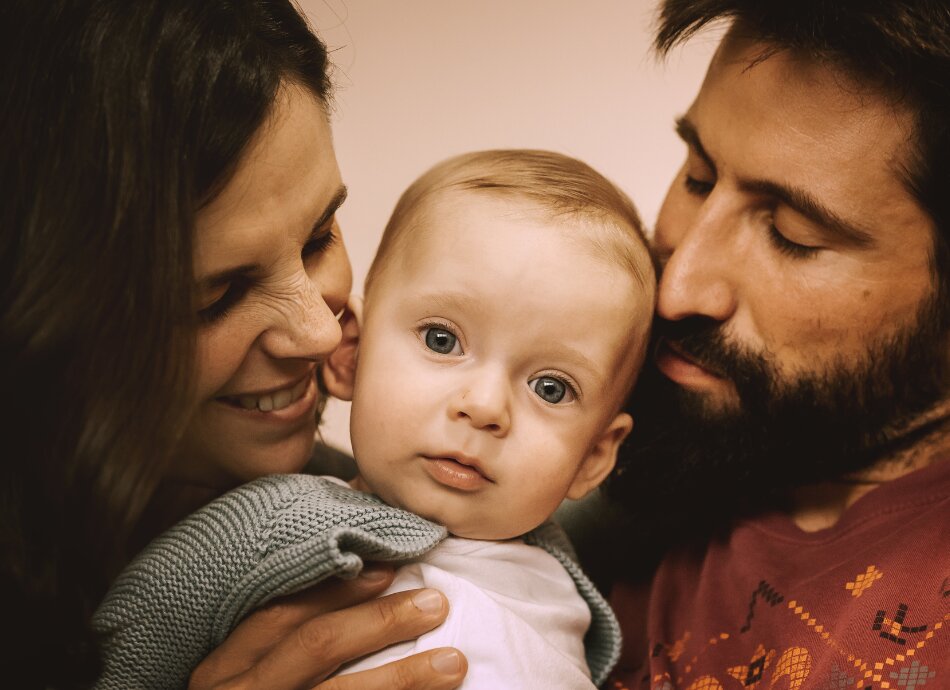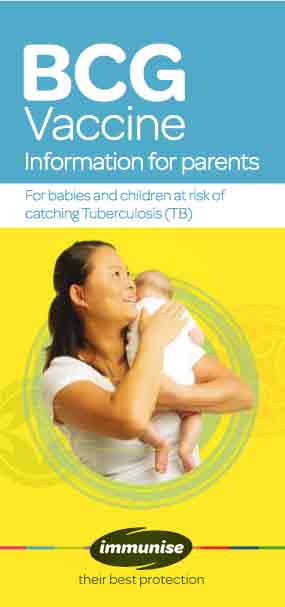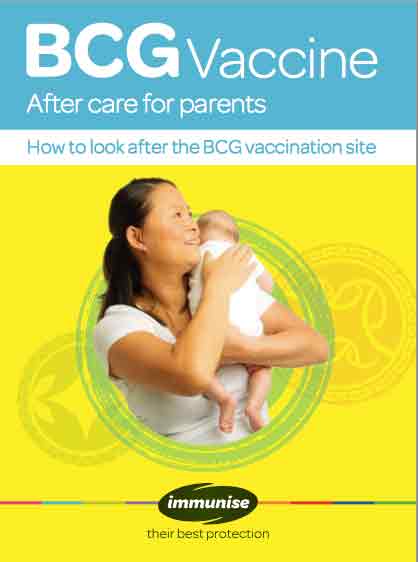You can now add Healthify as a preferred source on Google. Click here to see us when you search Google.
BCG vaccine
Also called TB vaccine
Key points about the BCG vaccine
- The BCG vaccine helps protect against severe forms of tuberculosis (TB).
- In Aotearoa New Zealand, the BCG vaccine is free for children under 5 years of age who have a higher risk of catching TB.
- Find out about the BCG vaccine and possible side effects.

The BCG (Bacillus Calmette-Guérin) vaccine helps protect against severe forms of tuberculosis (TB) by helping your immune system fight against TB.
TB is an infectious disease that can cause tiredness, coughing, fever and shortness of breath. Read more about TB.
Children under 5 years can be protected from severe forms of TB with a free BCG vaccination if they're at risk of catching the disease.
The vaccine can’t stop them from getting tuberculosis but it does help stop children from getting seriously sick from TB.
The BCG vaccine isn't recommended for the general population because the rates of TB are quite low in many parts of the country.
The vaccine is more effective when given to children because their immune systems are still developing and they're more vulnerable to severe forms of TB.
BCG vaccination is recommended for babies or children younger than 5 years of age if they have a higher risk of getting TB. This may be because they:
- are living in a house or family/whānau with a person who has TB or a history of TB
- have 1 or both parents (or household members or carers) who, within the past 5 years, lived for 6 months or longer in countries with a high TB rate (see countries with a high incidence of TB)(external link)
- are going to live or have lived, for 3 months or longer, in a country with a high TB rate and are likely to be exposed to people with TB (see countries with a high incidence of TB).(external link)
If your child is high-risk and born in Aotearoa New Zealand they will be referred to the BCG service. For eligible children not born in NZ, phone Regional Public Health and ask to speak to the BCG nurse.
If your child is 5 years of age or older they're no longer eligible for the vaccine.
Find out if your child is eligible(external link) for the BCG vaccination.
It's best for your child to have the vaccine from when they're few days old up to 6 months, but they can be vaccinated any time up to 5 years of age.
If your child is older than 6 months, he or she will be tested first to see if they have TB. Depending on the results of this test, your child may be offered the BCG vaccine. Read more about the tuberculin skin test.
BCG immunisation is partially protective against tuberculosis infection.
- When the BCG vaccine has been given just after birth, 70% of infants and young children will be protected from developing pulmonary TB (TB of the lungs) and 90% from severe forms of TB such as meningeal TB (infection of the membranes covering the brain).
- Protection has been shown to last for up to 20 years after BCG immunisation.
The BCG vaccine shouldn't be given to adults and anyone with severe allergy (anaphylaxis) to a previous dose of this vaccine.
The BCG vaccine shouldn't be given to children:
- 5 years of age or older
- who have a weakened immune system, eg, if they're taking medicines that weaken their immune system (or their mother did during pregnancy), are getting radiotherapy or have some forms of cancer
- who have infected skin conditions – if they have eczema, the vaccine should be given in a place that's not affected by eczema.
If your child has a fever (temperature over 38°C), administration of the BCG vaccine should be postponed until the fever stops. Having a minor infection isn't a reason to delay immunisation.
The BCG vaccine is given as an injection under the skin on the upper arm. Only 1 dose is needed for protection.
Note: Only specially trained vaccinators who are endorsed for BCG can give the BCG vaccine. Contact your local public health service(external link) to find out who can give the BCG vaccine in your area.
Skin reactions to the BCG vaccine are common, but serious long-term problems are rare. Most children develop a sore at the injection site. Once healed, the sore may leave a small scar.
- In 1 to 6 weeks, a small red blister may appear where the injection was given.
- After 6 to 12 weeks, the blister may turn into a small, weeping sore. If this happens, cover the site with gauze to allow air to get in. Don't use sticking plasters.
- The sore may take up to 3 months to heal and may leave a small scar. This is normal.
How to care for the vaccination site
- Keep the site clean and dry.
- If a sore develops, cover the site with gauze to allow air to get in.
- Don't squeeze or scratch the site.
- Don't use ointments, oils or herbs on the site.
- Don't put a sticking plaster over the site.
- Don't rub or massage the site.
The following links provide further information on BCG vaccine:
Tuberculosis (BCG) vaccine(external link) Health New Zealand | Te Whatu Ora
BCG vaccine(external link) HealthEd, NZ
BCG vaccine – after care for parents(external link) HealthEd, NZ
Tips following immunisation(external link) Health New Zealand | Te Whatu Ora, NZ
Brochures
References
- Tuberculosis(external link) Immunisation Handbook, NZ
- BCG Vaccine(external link) Medsafe datasheet, NZ
- BCG Vaccine SSI(external link) The Immunisation Advisory Centre, NZ
BCG Vaccine – information for health professionals(external link) HealthEd, NZ, 2019
Brochures

Medicines and side effects
Healthify He Puna Waiora, NZ, 2024
Credits: Sandra Ponen, Pharmacist, Healthify He Puna Waiora. Healthify is brought to you by Health Navigator Charitable Trust.
Reviewed by: Stephanie Yee, Pharmacist, Auckland.
Last reviewed:







